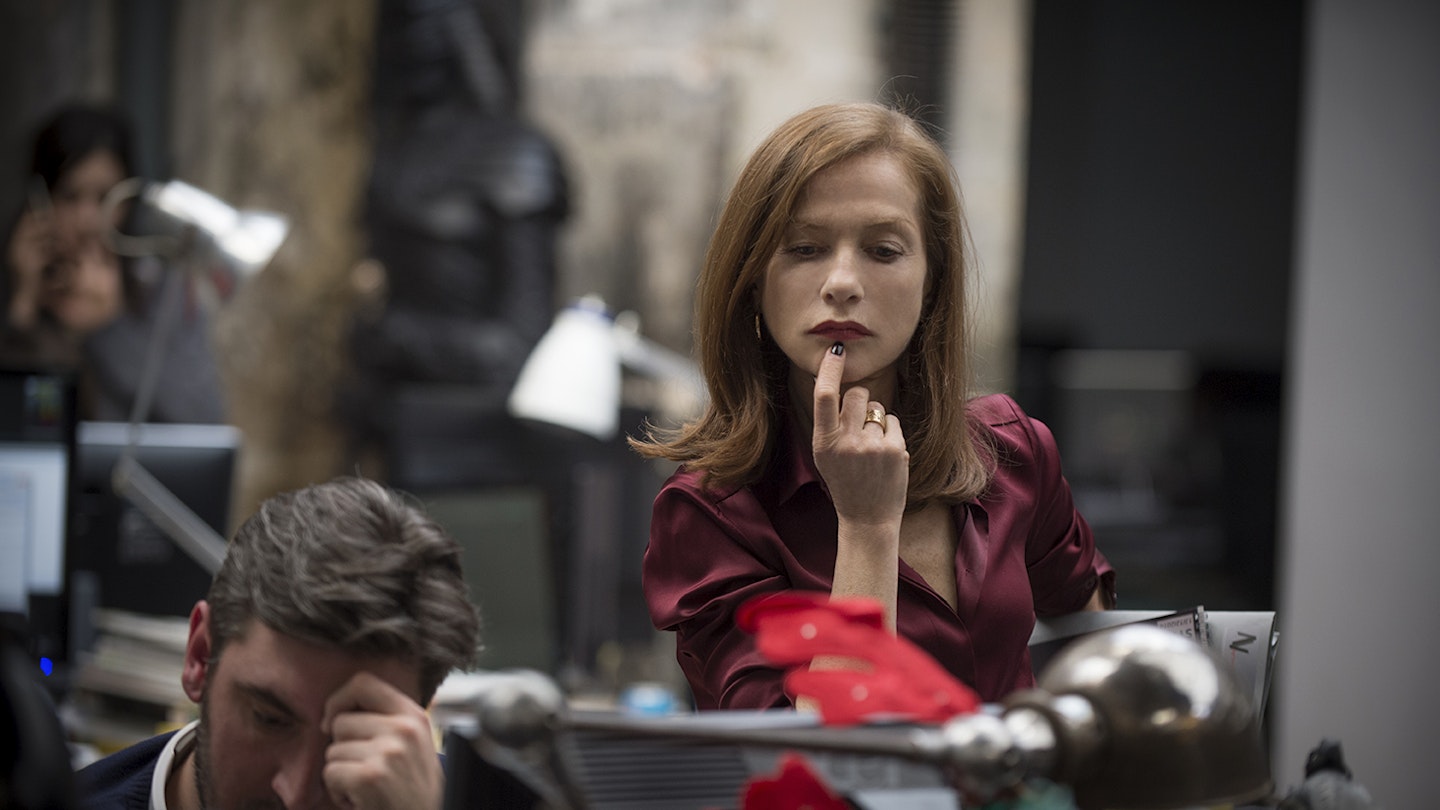Only in a French film would a woman emerge from a violent rape, take a long bubble bath and basically give a Gallic shrug before continuing on about her business, glass of wine in hand. It’s shocking in her refusal to be devastated by the brutal attack, but thanks to Isabelle Huppert’s multifaceted performance, the scenario is not just convincing but powerful.
The contradiction at the heart of this film is that it takes rape seriously but refuses to give it power. It’s like a bourgeois The Last House On The Left, where the victim takes back her agency in surprising, and at times horrifying, fashion. Verhoeven emphasises throughout that the rape is the least important aspect of Michèle’s life. With the video game company she founded, she has a gory new title to get to market, and hostile developers to wrangle. She doesn’t so much as flinch when the game’s ogre brutally attacks its heroine. It’s clear that something in her life has already exhausted this woman’s capacity for grief, though she wonders sometimes if she ever had normal feelings to begin with.
Huppert has always been good, but she’s never been better than this.
Meanwhile Michèle’s feckless son (Jonas Bloquet) has a bullying girlfriend (Alice Isaaz), her ex-husband (Charles Berling) has an idea for a game and she’s having an affair — of course — with the husband of her business partner (Consigny), while flirting with her neighbour (Laurent Lafitte). But something dark lurks in Michèle’s past that makes her feel at home around monsters in a way she can’t recreate without them. When she eventually confronts her rapist, she visibly discomfits him with an account of her own history. The battle lines are drawn: I am more like you than you know, and you do not have power over me.
That this extraordinary approach works is down to Huppert. She’s coquettish, controlling, traumatised and capable, gruff to those she loves but not without tenderness. It’s an extraordinary, mercurial portrayal of a woman who does not give a damn what you think of her, but who would prefer that you not fuss.
That’s not to say this is an easy watch. There are intensely troubling questions about the boundaries between consent and coercion, ideas meant to challenge our blanket rules. This is, after all, a film by serial provocateur Paul Verhoeven. But, while it will disturb, at heart it’s fiercely feminist. This is a heroine who fights her way free of everyone else’s control, who is determined to set her own path. Meanwhile male violence is everywhere in the background: Michèle’s lover enjoys it when she plays dead; she left her husband after he hit her; her employees are sexual creeps. Only her son is more a victim of violence than its cause, yet Michèle seems to doubt his connection to her as a result.
Michèle begins the film convinced there is something wrong with her and, through a violent ordeal, realises that maybe she is a better person than she thought. It may be counter-intuitive, but it’s never less than compelling.


